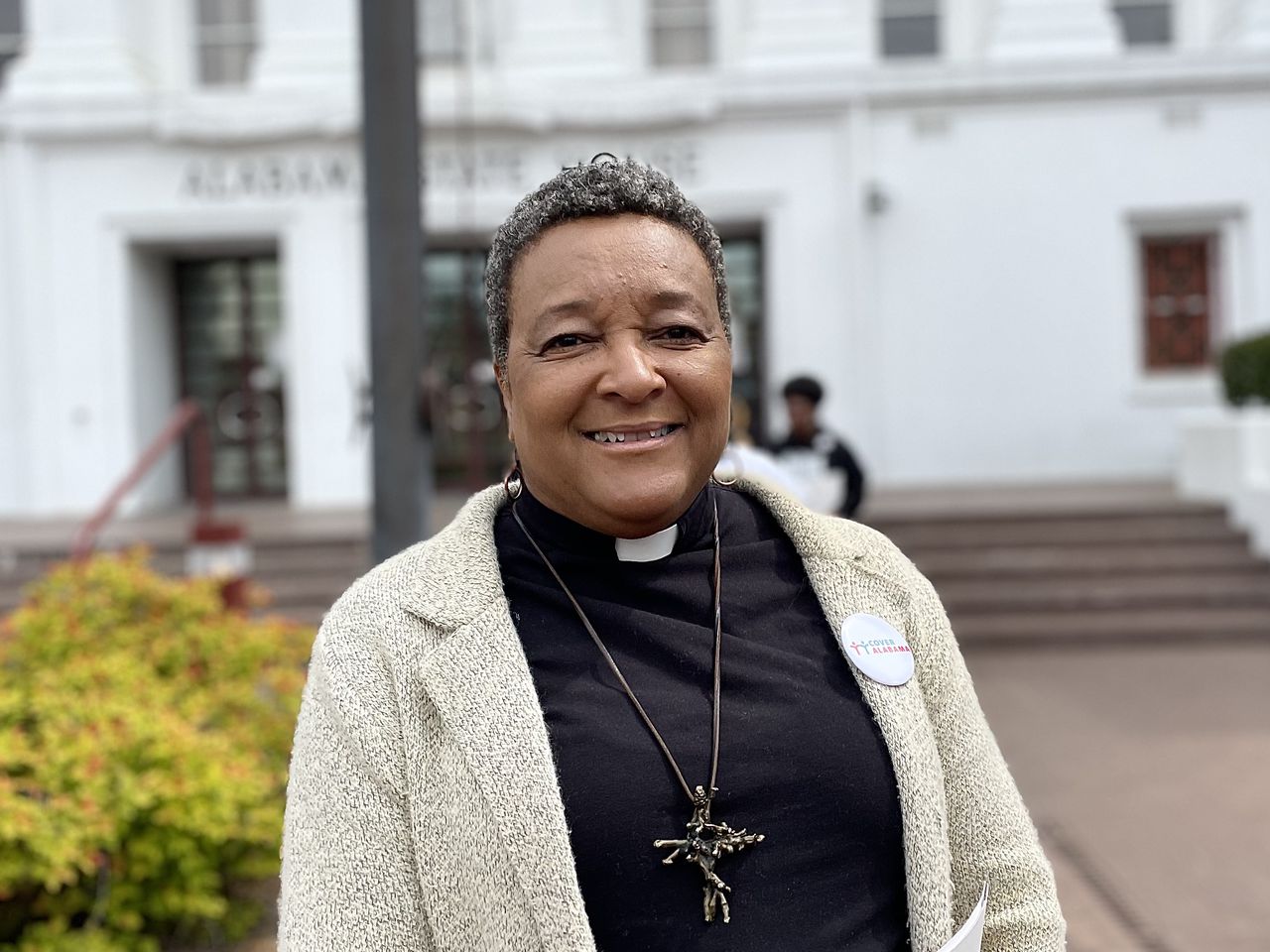‘It’s unethical not to take care of people’: Advocates urge Alabama lawmakers to expand Medicaid
As Alabama lawmakers return to this year’s regular legislative session, advocates gathered Tuesday on the steps of the state house to encourage lawmakers to expand and make Medicaid coverage available to more people.
Alabama is one of 11 states that has not expanded Medicaid healthcare coverage. Last year, the state did extend coverage for patients who recently gave birth from 60 days to one year.
Dr. Marsha Raulerson, an 81-year-old pediatrician from Brewton who spoke at the event, said she sees how access to health insurance impacts people in her community firsthand. She still sees some adult patients who she took care of as children because they can’t afford to go to a doctor, so she charges them less.
She described a former patient who lives in Opelika, Alabama, now in her late 20s, saying she called Raulerson to tell her she needed medication, but couldn’t pay her doctor $70 for her prescriptions. Raulerson charged her $15.
“I believe everybody deserves to have health care,” Raulerson said after the event. “I think it’s a God given right to be cared for, and our country is rich enough that we can provide health care for everyone. So to me, it’s if you don’t pay today, you’re going to pay a lot more in the future. And it’s unethical not to take care of people.”
Cover Alabama, who sponsored the event, is a nonpartisan coalition of advocacy groups, businesses, health care providers, religious groups and others who advocate for change in Alabama’s health care system.
Raulerson said she doesn’t believe Medicaid should be a partisan issue.
“I think if they called it Trump care, it would probably pass in a minute, and I really hate that. And they think it’s part of the Affordable Care Act, which they call Obamacare. To me — my husband’s a Republican, I’m a Democrat — we both agree that we need to expand Medicaid,” Raulerson said. “It’s healthcare for heaven’s sakes. What is political about getting health care?”
The Rev. Carolyn Foster of Greater Birmingham Ministries said Alabamians come to her for help with food, clothing and financial assistance, and that she listens to their struggles.
“Many of them work. Many of them have jobs. We’re not talking about someone who’s just looking for a handout, we’re talking about people who need a hand up,” Foster said after the event. “And that is what I think these legislators ought to be able to do. They have power here to represent all of us, but they don’t. They represent corporate interests, they put corporations in place of people.”
Rev. Carolyn Foster stands in front of the Alabama state house after speaking in favor of Medicaid expansion on March 21, 2023. Sarah Swetlik/AL.com
Raulerson said many of the young adults she works with don’t want disability coverage — they want to be working, but they’re on multiple medications that they know they can’t afford, and working would cause them to lose access to Medicaid.
“I think some people think it’s a form of welfare, but Medicaid does not pay your rent, it doesn’t buy your groceries, it doesn’t put gas in your car or buy your car,” Raulerson said when asked about those who oppose expansion. “Medicaid is health care.”
Foster said she is confused by the fact that a state in the Bible Belt won’t expand Medicaid access.
“It’s very clear to me, the scriptures, particularly if you’re a Christian — and most Christians or people who call themselves Christians — will know the scripture that says ‘When I was naked, you clothed me. When I was hungry, you fed me. When I was sick, you cared for me,’” Foster said, adding that she sees a disconnect when it comes to putting that scripture into action. “This state claims to be so religious, and I think maybe that’s the problem. It’s so religious, but it’s not really faithful to the religion.”
Raulerson, who still sees about 100 patients, added that she is very discouraged by what she has seen from public officials in regard to health care, but that she has also seen change in Alabama since she began practicing here in the 1980s, and that’s what keeps her hopeful.
“I think there are some people in our legislature who really do have a conscience,” she said. “I trust them to push for the right thing.”
